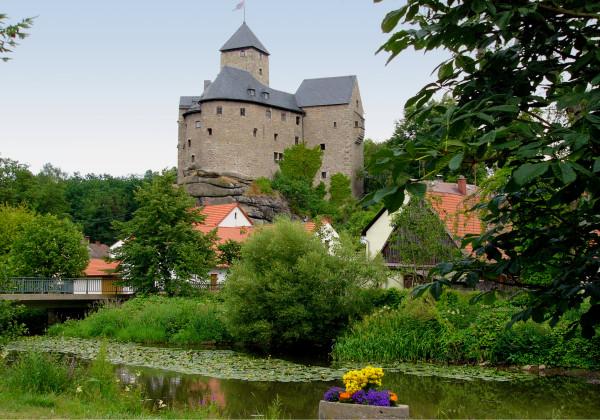Unveiling America’s Complexities Through the Eyes of a Houston Hot Dog Vendor at the No Kings Protest
A Fresh Perspective: Falkenberg’s Unexpected Experience Amid Houston’s No Kings Demonstration
Falkenberg, a seasoned hot dog vendor in Houston, found himself immersed in the vibrant and multifaceted atmosphere of the No Kings protest—an event that exposed him to a side of America rarely visible in his daily routine. Instead of the usual hustle of downtown commuters and sports enthusiasts, he encountered a diverse assembly of individuals united by a shared purpose. This gathering transcended mere political demonstration, evolving into a cultural dialogue that challenged Falkenberg’s preconceived notions about his community and country.
Throughout the event, Falkenberg noticed several striking elements:
- Wide-ranging demographics: From energetic youth activists to seasoned retirees, the crowd represented a rich tapestry of ethnicities, ages, and socioeconomic backgrounds.
- Engaged and respectful discourse: Conversations were marked by passionate yet civil exchanges, fostering understanding rather than confrontation.
- Moments of unity: Despite differing political beliefs, attendees demonstrated solidarity, bridging divides that often seem insurmountable.
| Dimension | Falkenberg’s Insights |
|---|---|
| Community Engagement | Active sharing of personal narratives and ideas |
| Demographic Range | Inclusive of all ages, races, and political affiliations |
| Atmosphere | Optimistic yet resolute |
Understanding Houston’s Social and Political Divides Through a Vendor’s Lens
Set against the dynamic backdrop of the No Kings protest, Falkenberg’s vantage point as a local hot dog vendor provided a rare glimpse into Houston’s intricate social and political landscape. From his food cart, he observed a convergence of impassioned demonstrators and intrigued spectators, each bringing their own vision of America’s future. While many advocated for social equity and justice, others expressed apprehensions about government policies, highlighting the layered nature of civic engagement in the city.
Key takeaways from Falkenberg’s observations include:
- Dialogues that moved beyond slogans, focusing on individual experiences and community repercussions.
- Intergenerational connections, with younger and older participants finding common ground.
- Economic concerns underpinning political debates, particularly regarding job security and access to social services.
| Focus Area | Vendor’s Perspective |
|---|---|
| Community Response | A blend of curiosity and guarded hope |
| Dominant Themes | Social justice, economic inequality, political division |
| Surprising Outcomes | Fostering dialogue across ideological lines |
Street Vendors as Vital Narrators of Community Sentiment During Protests
Street vendors often play an overlooked yet pivotal role during public demonstrations, acting as informal chroniclers of the social and political climate. At the No Kings protest, Falkenberg’s experience highlighted how vendors witness the nuanced human interactions that escape mainstream media coverage. Amid chants and marches, these vendors observe fleeting moments of empathy, tension, and resilience that collectively shape the story of civic activism.
Beyond their role as food providers, vendors serve as:
- Pulse takers: Monitoring shifts in crowd mood and energy throughout the event.
- Cultural bridges: Engaging with a broad spectrum of individuals united by shared causes.
- Informal historians: Relaying candid accounts that humanize complex political struggles.
- Support pillars: Offering nourishment and brief respites during emotionally charged moments.
These roles underscore how street vendors contribute to the social fabric of protests, transforming them from mere political gatherings into rich, interpersonal experiences that deepen community bonds.
Strategies to Empower Local Vendors Amid Civic Demonstrations
Vendors like Falkenberg, positioned at the intersection of commerce and community activism, face unique challenges during protests. Supporting these entrepreneurs is essential not only for their economic survival but also for maintaining the vibrancy and inclusivity of public events. Purchasing from local vendors during demonstrations reinforces community solidarity and sustains small businesses in turbulent times.
To better protect and empower vendors during such events, the following recommendations are vital:
- Designate secure vendor zones: Establish protected areas near protest sites to safeguard vendors from potential hazards.
- Enhance communication: Create direct lines between event organizers and vendors to streamline logistics and minimize disruptions.
- Mobilize volunteer support: Deploy community volunteers to assist with crowd management and vendor safety.
- Offer flexible permits: Provide temporary licenses and adaptable operating hours to accommodate the fluid nature of protests.
| Recommendation | Advantage | Responsible Entity |
|---|---|---|
| Secure Vendor Areas | Reduces risk, ensures steady business | Municipal Authorities |
| Vendor-Organizer Coordination | Improves event flow, minimizes conflicts | Event Planners |
| Volunteer Security Teams | Boosts safety, fosters trust | Community Organizations |
| Flexible Operating Permits | Supports vendor adaptability | Local Government Agencies |
Looking Ahead: Embracing Diverse Voices for a Stronger America
Falkenberg’s experience at the No Kings protest offers a compelling snapshot of America’s evolving social landscape. Beyond the familiar rhythms of daily life, his observations reveal the intricate interplay of hope, tension, and dialogue that define contemporary civic movements. This narrative reminds us that even from unexpected vantage points—like a humble food cart—one can gain profound insights into the nation’s multifaceted identity. Embracing these diverse perspectives is crucial for bridging divides and fostering a more inclusive, understanding society.




